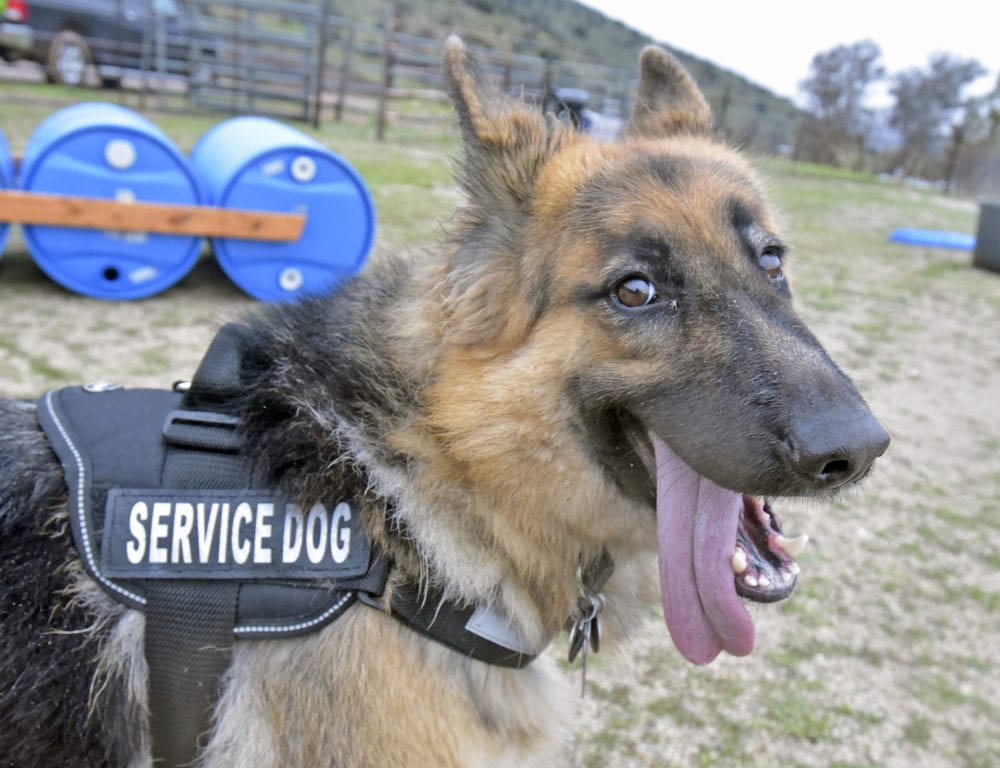Service Dogs in the Workplace

Every dog has its day- but not every dog has its day at work. Does your employer have to allow you to bring a service animal, such as a dog, to the workplace? The answer may surprise you.
The Americans with Disabilities Act has several sections, but only Section 1 applies to the workplace. Section 3 of the ADA requires that service dogs be allowed into public places, such as stores, but this section does not require that employees be allowed to bring service dogs to work. Instead, an employee’s right to bring a service dog to the workplace would be governed by Section 1, which covers workplace accommodations for disabled employees. Section 1 is silent on the issue of service dogs. What does this mean? It means that allowing a service dog to come to the workplace is no different than any other accommodation for an employee with a disability. So, the answer to whether your employer has to allow you to bring your service dog to work is “it depends.”
Under the ADA, employers have to provide reasonable accommodations to employees with disabilities, providing the accommodations do not create an undue hardship for the employer. This is a tricky area of the law with a lot of moving pieces, and what an employer may have to do in one situation will vary drastically from what has to be done in other cases.
First, we have to determine what is a disability. As a matter of law, a person is considered to have a disability if they have an impairment that is indefinite in nature that impacts a major life function. Something temporary, like a broken arm or the flu, is not a disability because it is not expected to last indefinitely. A missing baby toe is not a disability, even though it is expected to be missing indefinitely, because it does not impair a major life function. Asthma, depression, missing limbs, loss of sight or hearing, and other conditions may all be considered disabilities. A disability is not expected to be resolved within a finite period of time, and it impairs a major life function for the employee in question.
Assuming you have a disability, the next question is whether you can perform the essential functions of your job with or without a reasonable accommodation. Employers have to provide reasonable accommodations that are not undue hardships so employees can perform essential job functions, but sometimes no accommodation will be enough. An employer does not have to hire or continue to employ someone who cannot do the job no matter what accommodation is offered. Additionally, employers only have to offer “reasonable” accommodations that are not “undue hardships.” This means employers do not have to drastically inconvenience or displace other employees or operate at a loss, although some inconvenience to the employer is anticipated.
Our question today was about service dogs. Assuming an employee has a disability and a service dog has been recommended as a reasonable accommodation, is this an accommodation an employer must allow? The answer will depend on the situation. Some work environments are more dog-friendly than others. An employer does not have to allow a service dog if it would create a health, safety, or hygiene issue, so an employee working in a kitchen environment most likely would not be allowed to bring a service dog to the workplace. An employer also does not have to allow a dog if another employee in the workplace is allergic. There are many reasons why it could be considered an undue hardship to allow a dog to come to work. However, there are also situations where a service dog would be a perfectly reasonable accommodation. The best way to determine whether a service dog is an appropriate accommodation for your situation is to call Gold Star Law for a free consultation.
For help with this or any other employment law concern, contact Gold Star Law today.


